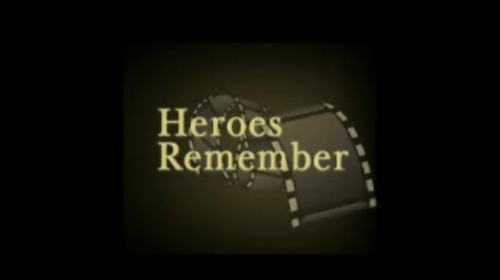The rats were well fed
First World War Audio Archive
Warning!
This video contains graphic content that may offend some viewers. Viewer discretion is advised.
The rats were well fed
Transcript
Hill 62 Memorial Belgium.
2nd and 3rd in 1915. I was all through that. And I, I wouldn’t come out, because I tell you the God’s truth, I got drunk.Courtrai Memorial Belgium.
That was a cinch because I had a good, a very good fellow there who was our platoon sergeant, fellow by the name of Holmes, Holmsie. When I came to after Colonel Baker was killed - Colonel Baker had a flask of good whisky on him - he just keeled rightLe Quesnel Memorial Belgium.
over. He got it right between the eyes. And if the sniper had to take something less valuable, or taken something that was less valuable, he would have shot me. But he only had the one bullet, whatever had happened, but I wasn’t meant to go then, see.Gueudecourt Memorial France.
But it didn’t take me long to learn the rest of the rules. There was no front line. We were taking the brunt of everything and we were just knocking Germans off as they came. Now, the reason that I got hit, blown up rather, that time,Dury Memorial France.
it was a 59 shell that got me. The reason that I got that was my own fear of rats. The bombardment was so heavy. It was the most fierce, the fiercest bombardment that was known on the British front during the whole war. But they were crawling under us andMonchy Memorial France.
trying to get into our pockets, see. And these rats were about nearly as big as cats, you know. They were well fed - corpses allPasschendaele Memorial Belgium.
around. I couldn’t take them at all so I couldn’t fire from a prone position on the ground what I was doing. That’s where I got this, it knocked part of the knuckle off there, but that was easyMasnières memorial France.
Later on that day, I was hit with a shell. The shell, and it was because they were still coming at us. These Germans only knew one thing to do and that was do as they were told and they were strictly according to the book and you knew what they were goingBourion Wood Memorial France.
to do. So, I was standing up. I wasn’t laying down anymore. The rats were getting too close, but I was, my aversion to rats was more than I could take and I, it didn’t affect my nerves or anything, but there were some targets in front of me that neededCourcelette Memorial France.
attending to and I was knocking those buggers down as fast as the they would come. And we got rid of a lot of them that way and it turned them back. It was myself and many others so, I thought, a lot of fellows were doing the same thing as I was doing,Beaumont-Hamel Memorial France.
just shooting the buggers as they came along. See, we were volunteers, we were not conscripts. We were volunteers and there’s a lot of difference, see. We got the conscripts later, much later. But you couldn’t take... they’re not the same mettle at all. But anyway, I got out of that. I was wounded twice inSt. Julien Memorial Belgium.
Ypres. I was wounded on the second of June and I was wounded again on the third of June, the afternoon of the third. When then we were relieved and I walked out - shrapnel in my right lung, shrapnel in my neck here. Now that was the one that went in theCanadian National Vimy Memorial France.
right lung, wound up there, and still there. It still bothers me.Description
Mr. MacLellan describes his involvement at Ypres. He gets drunk after his commanding officer is killed beside him, later he’s in the front line shooting the enemy, and he’s wounded because his fear of rats won’t let him shoot from the prone position.
Campbell MacLellan
Campbell MacLellan was born in Nanaimo, British Columbia, on February 17, 1900, and grew up in Sydney Mines, Nova Scotia. Coming from a background of poverty, he enlisted when he was just under fifteen years of age at Amherst, Nova Scotia. He trained at Valcartier for a time with the 22nd Battalion and was later selected for the 6th Canadian Mounted Rifles. He sailed to England aboard, ironically enough, the German cattle boat Herschel. At Ypres, Mr. MacLellan suffered a serious leg wound. The intervention of a young American doctor saved his leg from an earlier verdict of amputation. Prior to this, he had also taken shrapnel in the lungs. His later reflections speak of the patriotic attitude of Canadian soldiers. He was discharged at the rank of sergeant in February 1919. He married Joanna Nolen on April 21, 1924, and had two sons. Mr. MacLellan died on November 5, 1986.
Meta Data
- Medium:
- Video
- Owner:
- Veterans Affairs Canada
- Duration:
- 4:08
- Person Interviewed:
- Campbell MacLellan
- War, Conflict or Mission:
- First World War
- Location/Theatre:
- Europe
- Battle/Campaign:
- Ypres
- Branch:
- Army
- Units/Ship:
- 22nd Battalion
- Occupation:
- Infantryman
Attestation
Related Videos
- Date modified:



